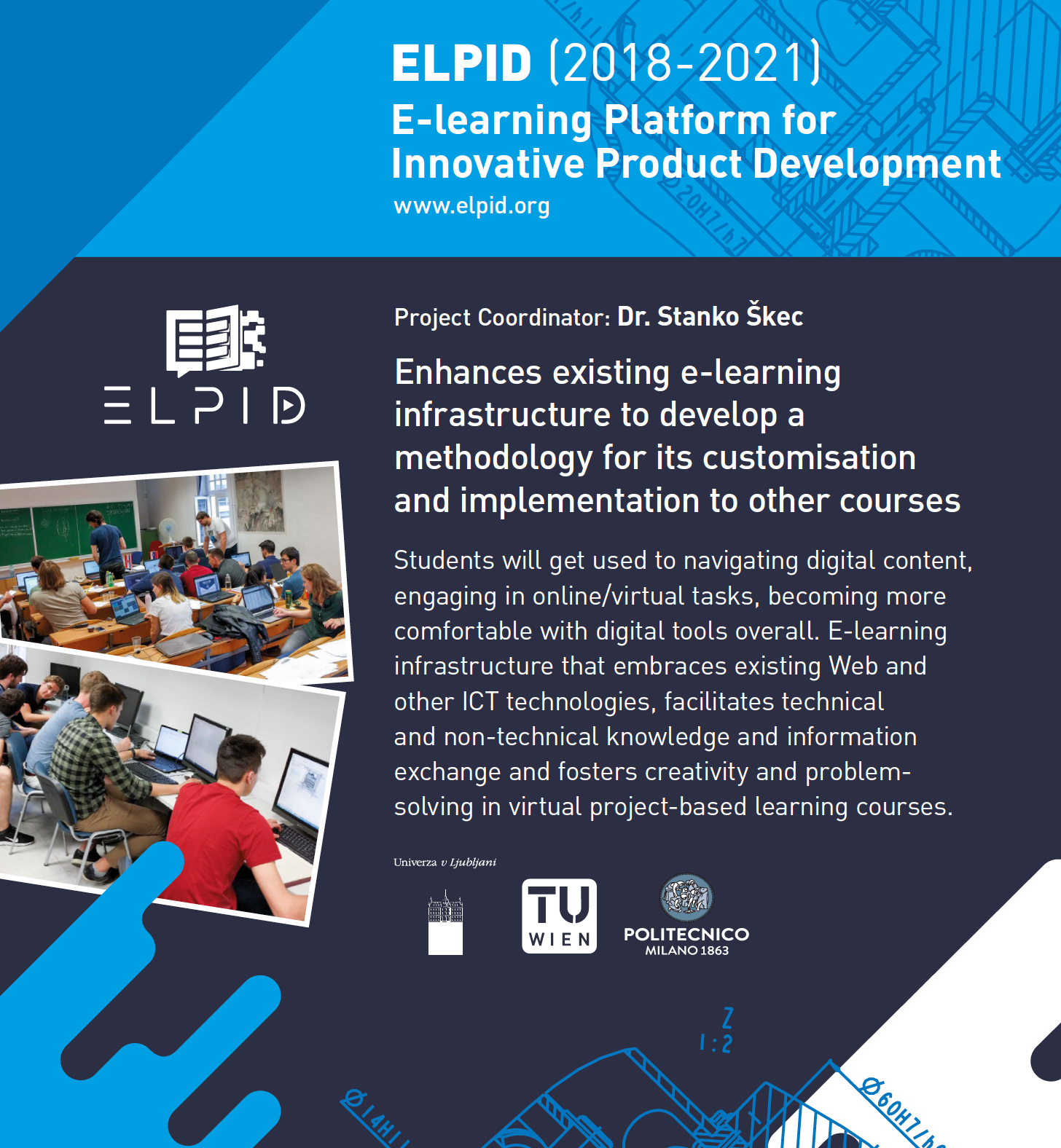ELPID
EDUCATION > Erasmus+ projects > ELPID
About ELPID ERASMUS+ Project
The underlying idea of this project proposal is to enhance existing e-learning infrastructure used within project-based learning courses and to develop a methodology for its customisation and implementation to other courses as well.

E-learning, as an approach, has a significant role in obtaining and acquiring digital skills due to its scalability and possibility to update available content. Through enriched e-learning experiences during their higher education, students can get used to navigating digital content, engaging in online/virtual tasks and can generally become more comfortable with digital tools. Proposed e-learning infrastructure would embrace existing Web and other ICT technologies that can facilitate technical and non-technical knowledge and information exchange and foster creativity and problem-solving in virtual project-based learning courses.
Four HEIs will participate in the project: University of Zagreb, Croatia, University of Ljubljana, Slovenia, Politecnico di Milano, Italy and TU Wien, Austria. The fifth partner will be University Computing Centre (SRCE) from Zagreb.
The focus of the research and development activities in the project will be on establishing e-learning platforms to adapt to the demanding needs of project-based design courses. New concepts and structure of e-learning platform will be established, implemented and validated simultaneously with three consecutive years of student project-based learning courses, which will be conducted in close cooperation with selected industrial partners. This way a real industrial environment will be simulated in order to thoroughly test, improve and demonstrate the intellectual outputs of this project.
Three main intellectual outputs are proposed:
- Proof-of-concept of the e-learning platform for virtual project-based design course (O1). This includes a definition of e-learning platform architecture and content type. As a part of activities related to this output, different problem-solving, creativity, CAD/CAE and visualisation tools will be tried out to check their suitability for virtual project-based learning courses.
- Completed e-learning platform for virtual project-based design course (O2). The completed e-learning platform will merge the general functionalities of online collaboration tools with problem-solving, creativity, CAD/CAE and visualisation tools, which are needed for flawless project work in a virtual environment.
- Methodology for customising and implementing e-learning platforms within project-based design courses (O3).
The sequence of three consecutive summer semester courses at participating HEIs will be used for conducting case studies and validation of intellectual outputs. Work done by students with e-learning platform throughout the courses will be presented at 5-day final workshop events at the end of blended short-term mobility of the students.
This project will introduce students to the state-of-art digital technologies used in a virtual engineering environment and hence prepare them for the future working environment. The accompanying research studies may result in valuable insights for the educational researchers.
Project-based design courses are quite common on European and international universities, and the project outputs will comprise guidelines on how to tailor e-learning platforms for this purpose and how to provide students better digital support during PBL work. Therefore, the proposed platform can motivate educators on other academic institutions to further develop this key aspect of their design courses. As such, these courses would then better reflect today’s engineering practice, but also would attract more students because of its immediate applicability and hands-on experience (quite often neglected in traditional design courses).
Since there is a continuous tendency to integrate more digital tools into engineering education, the outputs of this project could have a significant impact on different design project courses, but also on the improvement of existing e-learning support for project-based learning in general. Building on these premises, we expect that project outputs could be adopted and used in other areas and sectors besides engineering design.
Project coordinator is Dr. Stanko Škec.




